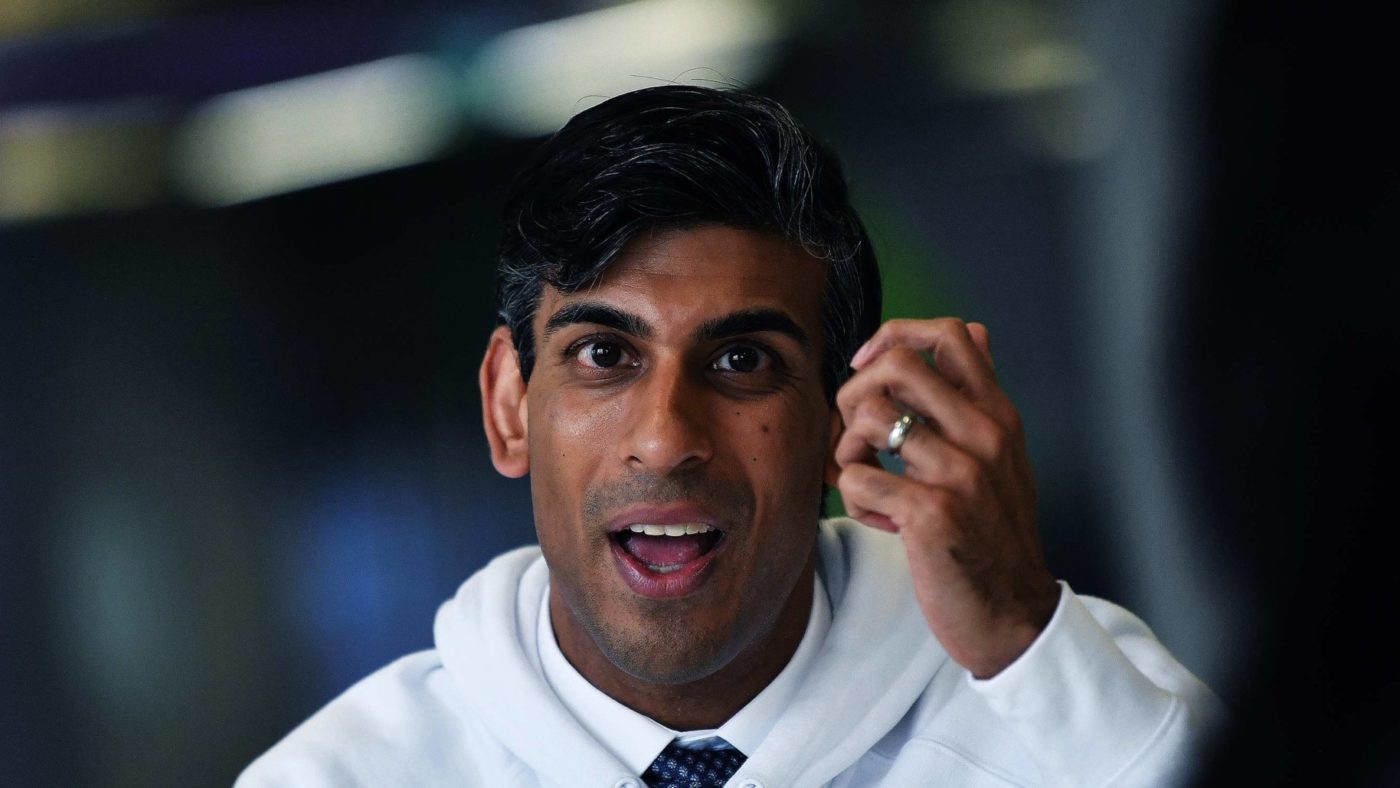Rishi Sunak is getting ahead of himself. With the back benches restive, one understands that an upwardly mobile Chancellor wants to return to Parliament with some eye-catching ideas about his personal brand of Conservatism. And so this week we learn that the Chancellor is drawing up plans for a £30bn “tax raid on the wealthy” and that he intends to pick a fight with the United Nations over the 0.7% international aid target, which might better be spent on “cyberweapons”. Perhaps.
There is no point getting too worked up about this – these are not sincere proposals. Quite apart from the politics, the economics do not stack up. As Julian Jessop painstakingly explained on this site yesterday, there is “no serious economist who thinks that now is the right time to start applying the brakes”.
No, what this most reveals is the Chancellor’s deftness at using the dark arts of backroom briefing to advance his political ambitions. The first story in particular manages to project tough decisions, sound money and progressive intentions all via one sortie into the Sunday newspapers. Not only that, it is precisely the sort of intervention guaranteed to see an orderly queue of backbenchers form outside his parliamentary office for private discussions. Job done.
Nevertheless, there will be some people – not least his colleagues around the Cabinet table – who might consider such kite-flying exercises unseemly at a time of national crisis. And whether you choose to take his ideas at face value or not, such activity does betray a mind overly preoccupied with thoughts about the future. After all, we remain, as if he could forget, in the throes of the deepest economic slump this country has experienced for at least three centuries. Meanwhile, the view from some of our nearest European neighbours, is that the prospect of a soul-destroying second wave looks disconcertingly likely.
Still, there is nothing wrong with ambition, so I would like to offer an alternative crowd-pleasing economic project that might help with his day job of fighting the virus. That project, more than suitable for an energetic and expansively minded Chancellor, would be to radically improve the fortunes of Britain’s key workers.
I accept that this is not the most leftfield of suggestions. Like all of us, the Chancellor will have spent his Thursday evenings during lockdown clapping for carers on the frontline of the fight against Covid. His government has subsequently paid rich tributes to their efforts during that period and the Prime Minister even named his son after the nurses who helped his personal battle with the virus. If Sunak prefers more controversial causes, this isn’t it.
Yet for all the recent investment in the NHS, the Tory political brand remains fundamentally weak on both compassion and trust when it comes to running public services. Moreover, new research from the RSA reveals the scale of the sacrifice made by keyworkers during lockdown. Over half – and more than 60% of women and NHS workers – report finding it difficult to maintain their mental health, whilst 54% worry about catching the virus at work. Meanwhile, some key workers, even as they took on extra hours and kept the country running, still struggled with crippling levels of economic insecurity. Twenty-two percent of supermarket workers had to dip into their savings to make ends meet, whilst over 20% of social care workers would struggle to pay an unexpected bill of £100.
To put it mildly, this all seems an unacceptable condition for essential workers in the fifth richest country in the world. But improving key worker living standards is not just an economic issue, it is also a key part of preparing for a second wave. As it stands, pay for many key workers is so poor that they fall below the lower earnings threshold for statutory sick pay. That means there are around 36,000 part-time nurses and 79,000 part-time carers – many of whom will have been called-in to meet the pandemic demand spike – who are currently ineligible for sick pay, even when self-isolating.
Equally, whilst we hear a lot about infrastructure planning for the virus’s potential return – testing, track and trace, expanding flu vaccine coverage – the support needed to ensure we do not lose a cohort of irreplaceable nurses and social care workers to trauma or burnout appears a less pressing issue for the Government.
It would not take a great deal of money, certainly not put next to the furlough scheme, to correct these injustices and provide Britain’s key workers with more security. The Welsh Government has awarded all social care workers a £500 bonus, something which would cost around £400m in England. Better mental health support for nurses and care workers could conceivably pay for itself if the virus returns, whilst expanding sick pay in this way is unlikely to cost more than about £20m.
But for Rishi Sunak, eager to convince parts of Britain he can be a different type of Conservative politician, they could prove politically priceless.
Click here to subscribe to our daily briefing – the best pieces from CapX and across the web.
CapX depends on the generosity of its readers. If you value what we do, please consider making a donation.


